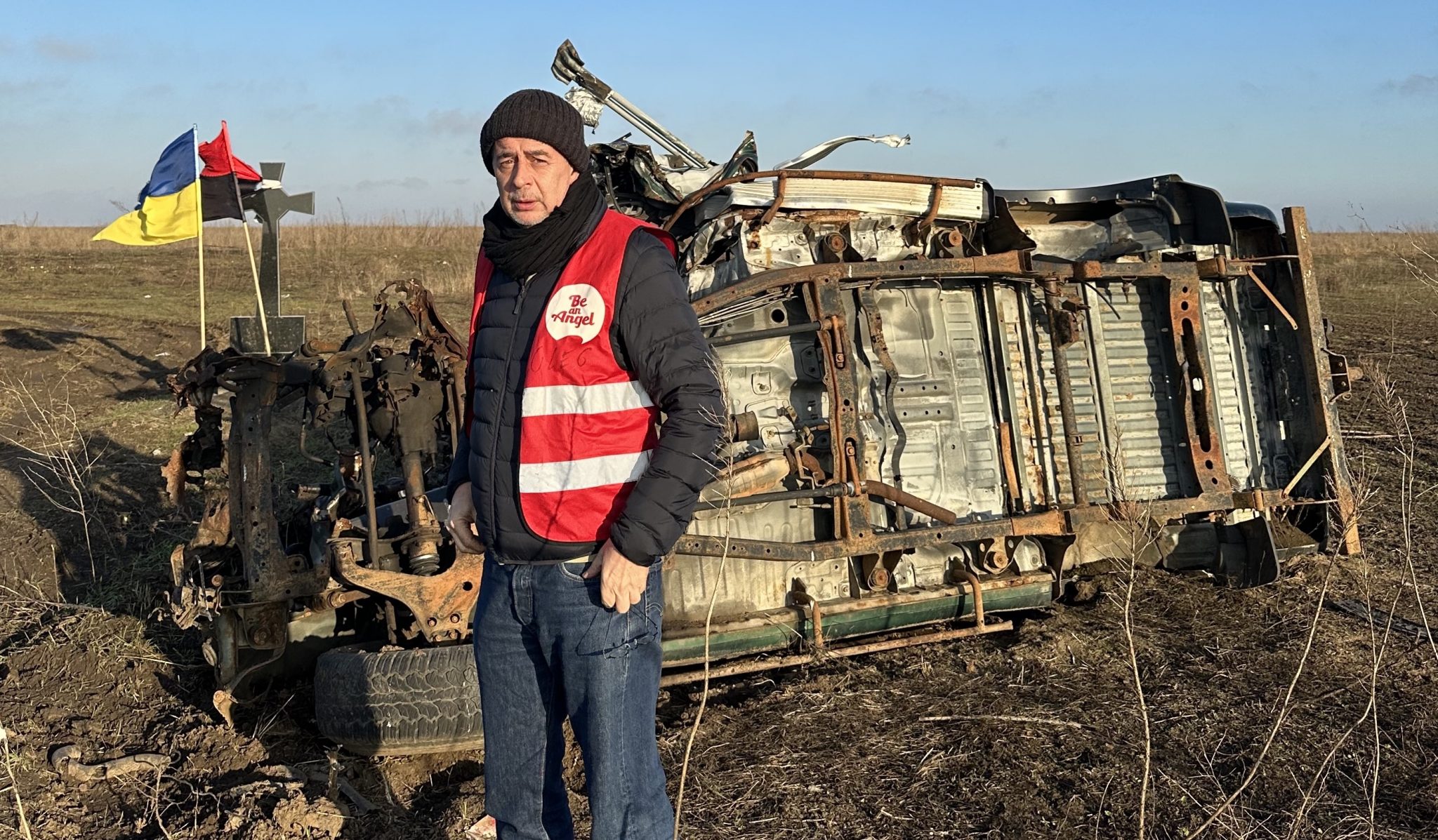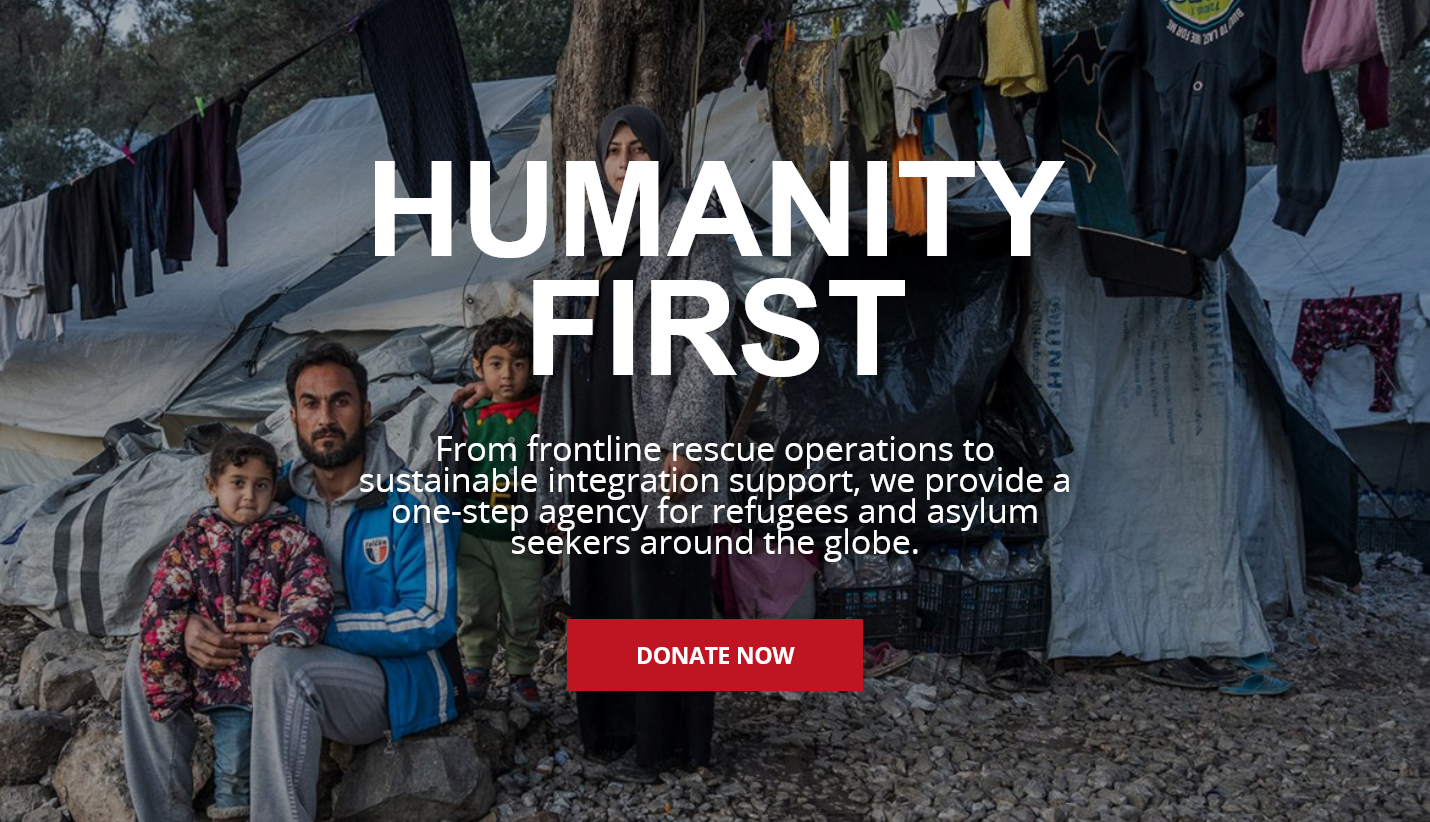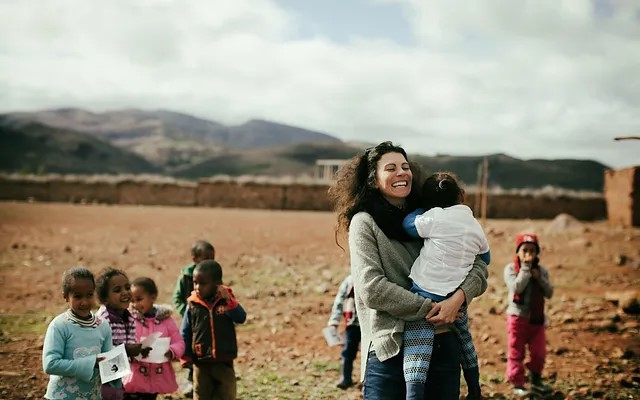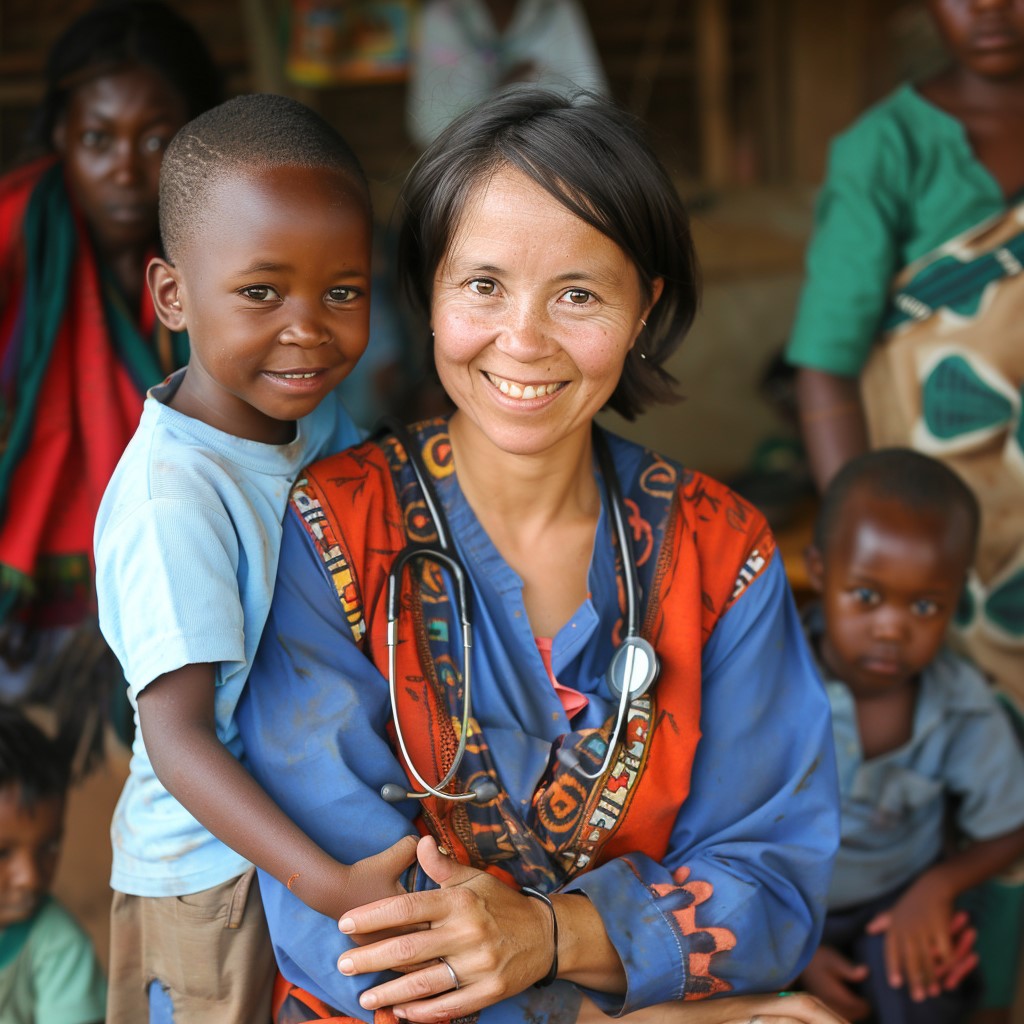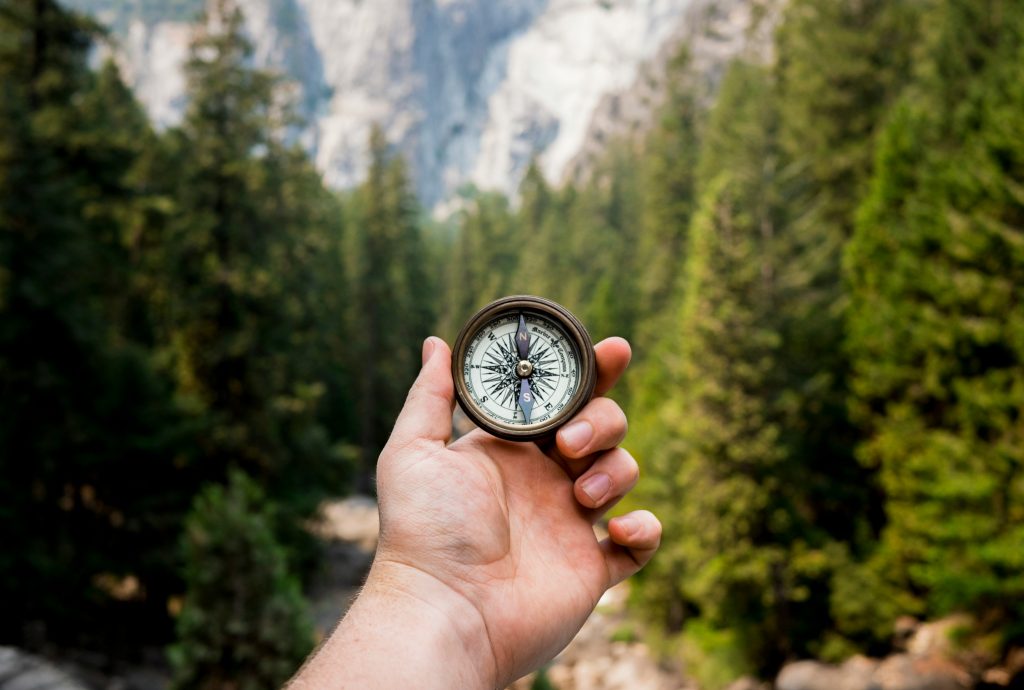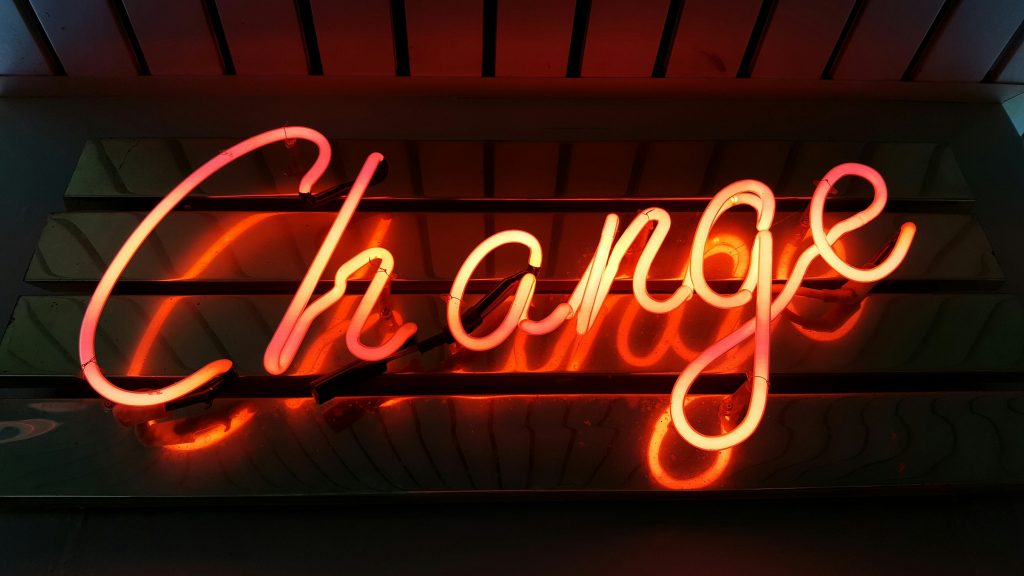Andreas Tölke, 64, spent 30 successful years as a journalist in the fields of contemporary art, architecture, and design. He accompanied and interviewed international stars such as Zaha Hadid and Jeff Koons for years, and his work was published globally. I first met him in Marrakech in 2008 while he was writing an article for “Elle Decoration.” Since then, we’ve been friends.
In 2015, Andreas made a dramatic overnight change in his life by opening his home to homeless people fleeing war. For the past nine years, he has been the active founder of the organization “Be an Angel,” which is dedicated to addressing migration and immigration solutions in politics and administration. His guiding principle: Economic and social integration creates a win-win situation. One of his most remarkable and successful projects is the Berlin restaurant “Kreuzberger Himmel,” which he built and runs entirely with refugees.
In March 2022, shortly after Russia’s full-scale invasion of Ukraine, Andreas moved first to Moldova and then to Odessa, Ukraine. Together with his team, he has evacuated over 23,000 people from war zones and delivered nearly 5,000 tons of aid to Ukraine. “Be an Angel” is now registered in Moldova, Ukraine, and with “Friends of Be an Angel” also in the USA. Andreas personally accompanies nearly every evacuation to ensure that donations reach where they are needed and to make sure that his team operates as safely as possible. Despite this, he says, “Missiles and drones have struck just a few hundred meters away countless times.” He risks his life to save innocent civilians. For his courageous efforts, he was awarded the Federal Cross of Merit and received an honorary doctorate from the prestigious Arden University in the UK.
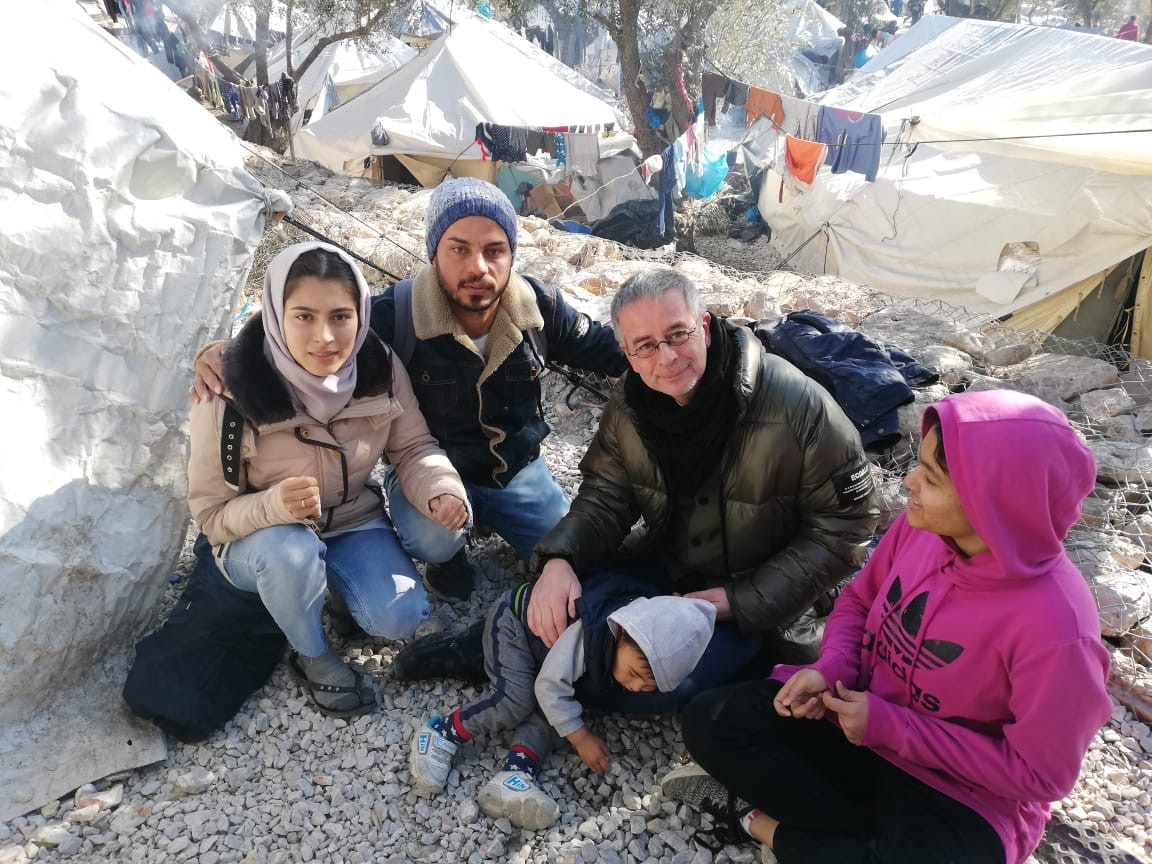
© Be an Angel
AB: Dear Andreas, your story is incredibly impressive. You changed your life overnight and embarked on a new path – from luxury, fashion, and design to refugee camps, bureaucracy, and even fear. We were all shocked back then, and many wanted to help—and did. But after a short time, the initial feeling of “we can do this” faded. Why do you think that happened?
AT: We still define ourselves largely by what we possess, to quote the old Fromm. Far too little by who we are. Shopping, traveling, dining out—if these were taken away from people, they would react like addicts in withdrawal. This is especially true for the urban elite, who often know that we are driving our planet to the brink ecologically, and that society is increasingly drifting apart. The response is often insecurity and the attempt to find inner peace—by buying something new, whether it’s yoga classes, soy milk, or Ayahuasca. We try to soothe our inner turmoil by consuming externally—a familiar pattern.
AB: But how can one find true fulfillment in a turbo-capitalist world?
AT: Especially in Germany, where we live in total wealth and luxury, we are still deeply afraid. Everyone fears losing something, defends their wealth, and isolates themselves. Despite better knowledge, we cling to old solutions and are quick to shift responsibility away from ourselves. Bureaucracy is to blame, politics is to blame, the economy is to blame—few realize that our society is a collective responsibility. In the urban elite, topics like climate change and migration are hotly debated, but only a few understand that each individual can make a difference. Few consider that this very task could become a substitute for consumption, travel, and superficial pleasures. If even half of all yoga classes were replaced by social activities, people would realize that they can a) make a difference and b) become more balanced and happier. In short: content over consumption.
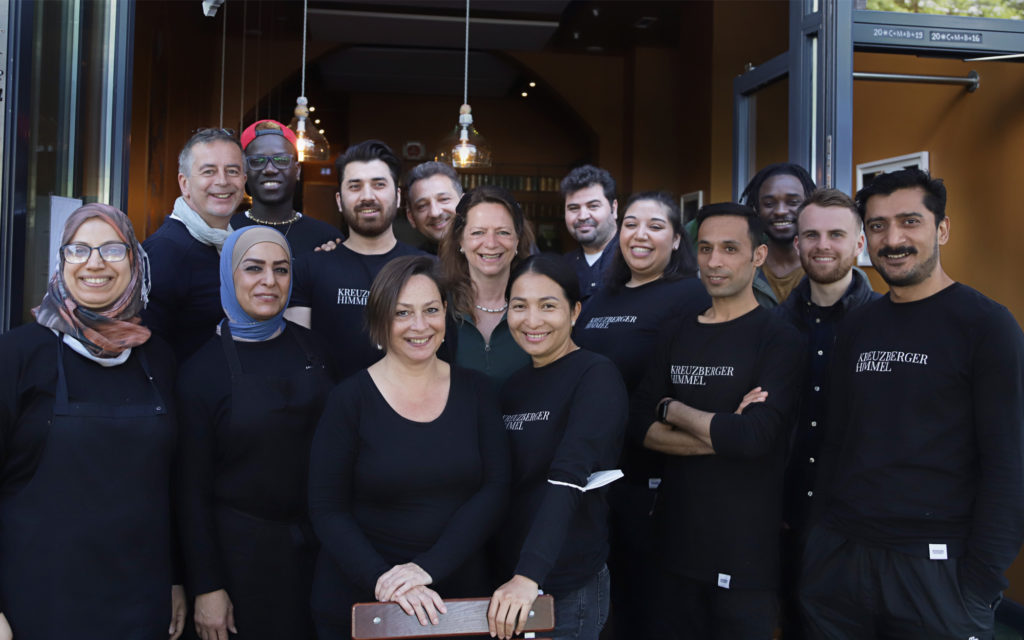
© Kreuzberger Himmel
AB: Content over consumption sounds great. But not everyone can turn their life upside down like you did. What advice or ideas do you have for people who want to start engaging in meaningful ways?
AT: This fundamental feeling of existential fear, deeply rooted in Germany’s history, is currently driving many people towards extreme self-interest and isolation. Isolation narrows our perspective, leading to more rigid stances. True freedom comes when we stop seeing our own views as the only unshakeable truth, and instead, constantly question ourselves, examine every ideology, and scrutinize even the simplest solutions.
Germans are often seen by other cultures as know-it-alls who say, “Yes, but…”. As straightforward as it sounds: We all need to lighten up a bit. Choose empathy over harshness. Empathy is like a muscle—it gets stronger with practice. Volunteering outside your comfort zone broadens your horizons. Being on the parents’ council isn’t enough. Get involved in integration projects, social outreach in disadvantaged areas, or support for the homeless— move toward the tough spots, embrace your fears.
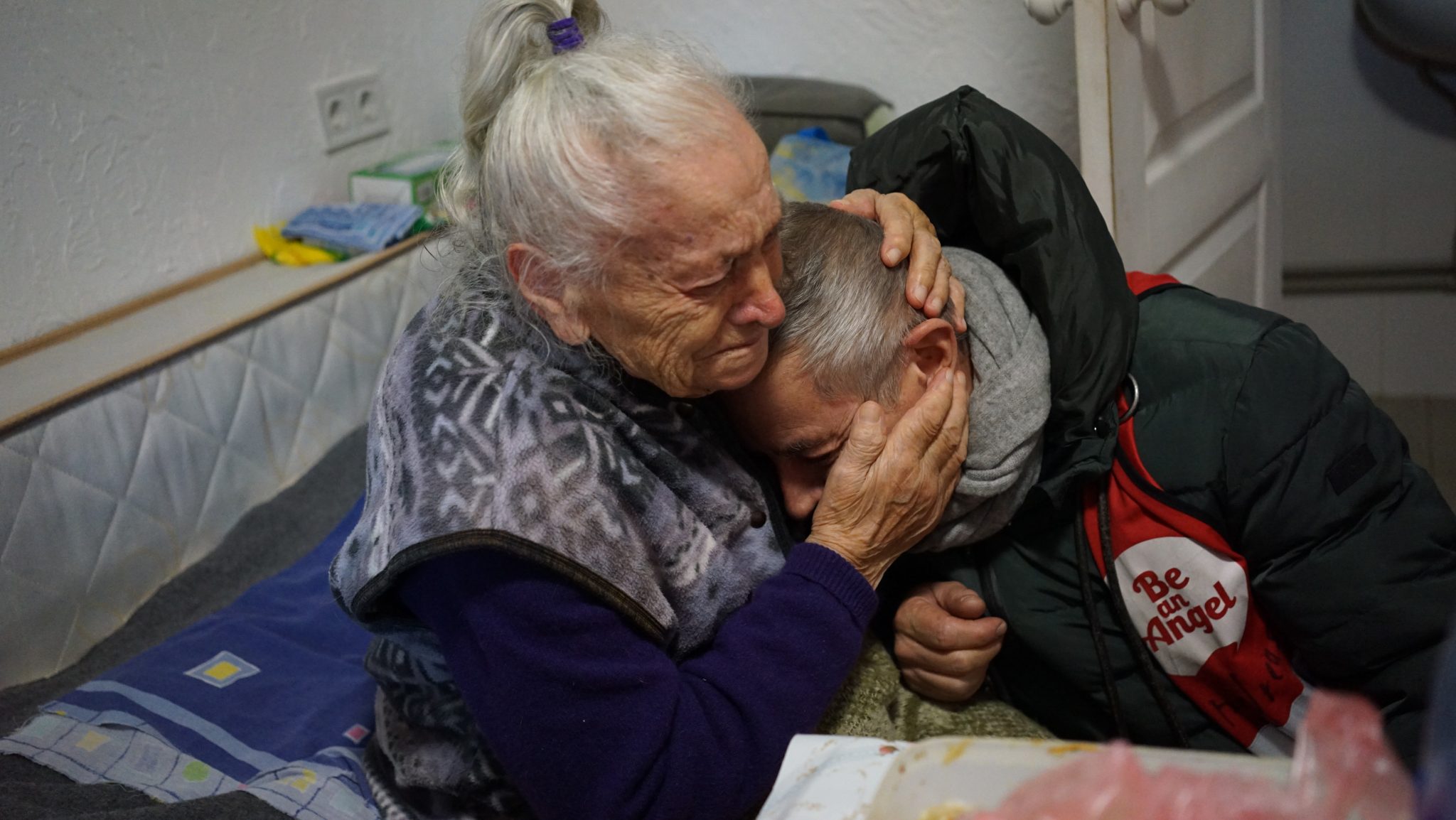
© Be an Angel





